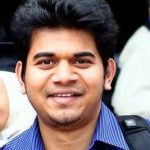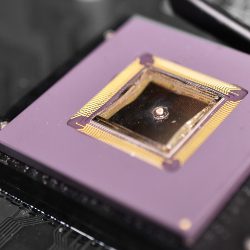
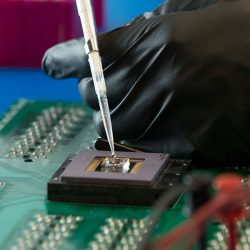
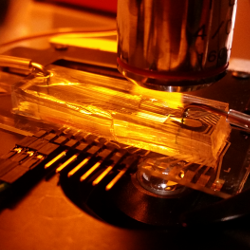
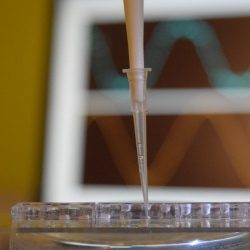
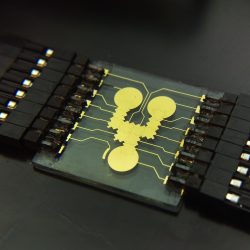
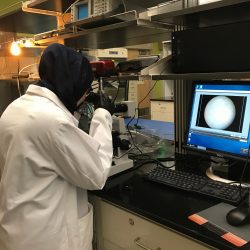






Current Graduate Students Working in the Lab
 Ming-Hao Cheng received a B.S. degree in Electrical Engineering with a concentration in communication system from Chang Gung University in 2014. From 2014 to 2015, he joined Republic of China Air force as a computer programmer. Ming-Hao has grown a strong willpower and robust physical condition to conquer the difficulties due to the strict training he received in military. After completing the military service, Ming-Hao came to Colorado State University to pursue his M.S. degree in 2015. His master’s project focused on developing a replacement of the lock-in amplifier for the Fluorescence Lifetime Microscopy. Ming-Hao now is a Ph.D. student in the ECE department, and his research focuses on development of microfluidic devices for measuring the metabolic rate of cells, such as oxygen and glucose consumption. In his free time Ming-Hao enjoys photography and watching funny videos on YouTube.
Ming-Hao Cheng received a B.S. degree in Electrical Engineering with a concentration in communication system from Chang Gung University in 2014. From 2014 to 2015, he joined Republic of China Air force as a computer programmer. Ming-Hao has grown a strong willpower and robust physical condition to conquer the difficulties due to the strict training he received in military. After completing the military service, Ming-Hao came to Colorado State University to pursue his M.S. degree in 2015. His master’s project focused on developing a replacement of the lock-in amplifier for the Fluorescence Lifetime Microscopy. Ming-Hao now is a Ph.D. student in the ECE department, and his research focuses on development of microfluidic devices for measuring the metabolic rate of cells, such as oxygen and glucose consumption. In his free time Ming-Hao enjoys photography and watching funny videos on YouTube.
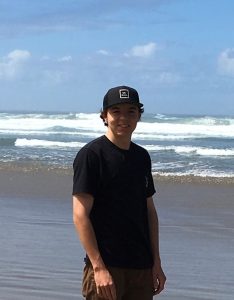 Ryan Way completed a B.S in Electrical Engineering at Colorado State University in May 2021 and is currently pursuing a Master’s degree in Electrical Engineering. His interests lie in mixed-signal circuit design, VLSI design, and system level electronic device development. Ryan started working in the BLISS lab for his undergraduate senior design project where he helped with the design and implementation of various PCB boards for the Smart Well Plate project. His passion for this project led him to pursue a master’s degree where he can continue the progress of the Smart Well Plate project. With the help of his colleagues in the lab he is currently working to add electrochemical impedance spectroscopy capabilities to the Smart Well Plate through an attachable USSING chamber. This addition would allow the device to record the electrical impedance and pH of intestinal tissue.
Ryan Way completed a B.S in Electrical Engineering at Colorado State University in May 2021 and is currently pursuing a Master’s degree in Electrical Engineering. His interests lie in mixed-signal circuit design, VLSI design, and system level electronic device development. Ryan started working in the BLISS lab for his undergraduate senior design project where he helped with the design and implementation of various PCB boards for the Smart Well Plate project. His passion for this project led him to pursue a master’s degree where he can continue the progress of the Smart Well Plate project. With the help of his colleagues in the lab he is currently working to add electrochemical impedance spectroscopy capabilities to the Smart Well Plate through an attachable USSING chamber. This addition would allow the device to record the electrical impedance and pH of intestinal tissue.
Outside of working on research, Ryan enjoys golfing, snowboarding, traveling, and watching movies in his free time.
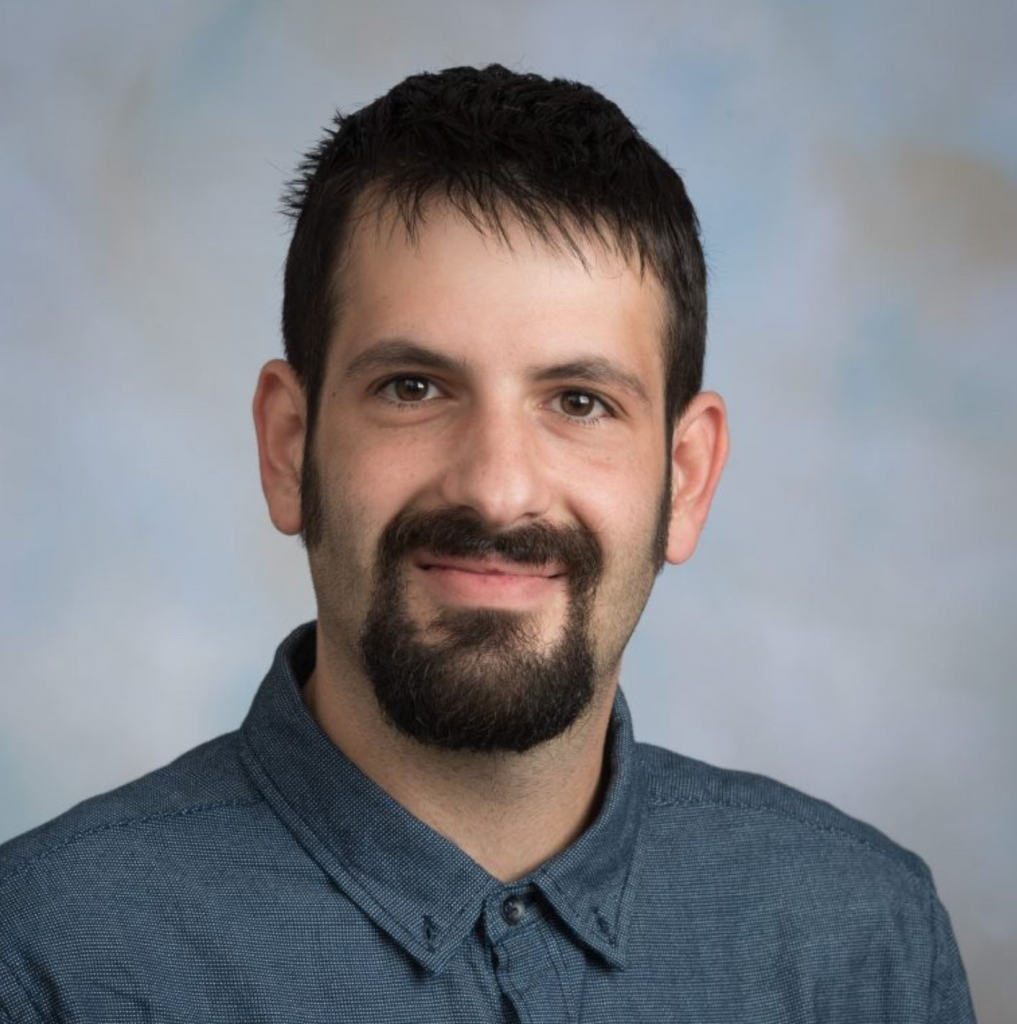
Michael Siegel is a graduate student pursuing his Master’s degree in Electrical Engineering. He received a BS in Electrical Engineering at Colorado State University in May 2019, and an AS in Automotive Technology from Front Range Community College in May 2015. For his senior design project, Michael was part of the Bio-Analysis project which won first place in the CSU 2019 E-days. Both the project and support from his advisor inspired Michael to continue into graduate school and work with biosensors. Michael will be working as part of Dr. Tom Chen’s group to develop and test various biosensors which can simultaneously measure different aspects of cell metabolism. In his spare time, Michael enjoys RC hobby vehicles, PC gaming, and restoring antique cars.

Jacob Alfieri completed a B.S. in Electrical Engineering and Biomedical Engineering at Colorado State University in May 2020. His senior design project had a team consisting of Electrical, Mechanical, and Biomedical engineering students to develop the Smart Well-plate: a handheld device that could measure metabolic responses of tissues and cell cultures via an electrochemical sensor system. Jacob is now pursuing an M.S. in Electrical Engineering with his graduation project being a continuation of the Smart Well-plate. His hope with the project is to development a microfluidic system for the Smart Well-plate to allow extended real time measurement of metabolites being produced by the cell culture, and to integrate the sizing of the device into the framework of current well-plate machines in the field. In his free time, Jacob loves to bike around Fort Collins, play online games with friends, and play the piano.
Graduate Students Worked in the Lab and Graduated within the Last 5 Years
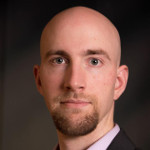
Daniel Ball completed a B.S in Computer Engineering in student studying at Colorado State University in May 2017, and M.S. in Computer Engineering in 2021. As a senior design project he worked with a team of computer engineering and mechanical engineering students to develop BioBox: a low cost environmentally regulated bioanalysis chamber. His graduate project is a continuation of the BioBox, bringing the system to a consumer ready product. The completed device will have improved environmental controls, a digitally controlled microscope and stage with dark field and fluorescence microscopy capabilities. He is also designing software, including computer vision to aid in automated experiments and a user interface for interacting with the system.
Prior to attending CSU, Daniel was an Electronics Technician in the United States Navy, where he performed preventive and corrective maintenance on military communications equipment and later worked as a systems administrator for an enterprise network spanning the east coast. While enlisted, he was was stationed in Iceland, Japan, Illinois, and Virginia.
Outside of school, Daniel has a range of interests including woodworking, camping, photography, and gaming.
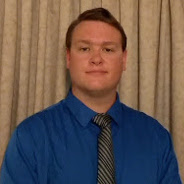
Caleb Begly was a Master’s Degree EE Student at Colorado State University. He received a Bachelors of Science Computer Engineering degree from Colorado State University in May 2017, and an Associate of Science in Physics in December 2014. The undergraduate degree focused on hardware classes and VLSI to build skills in digital systems design in addition to the core Computer Engineering coursework. For the senior design project, he worked on the interdisciplinary BioBox environmental chamber project which won first place in the CSU 2017 E-Days. This project, coupled with the GAUSSI classes, sparked an interest in biosensing. While working on the Master’s degree, Caleb developed multiplexed impedance sensing using the third generation CMOS biosensor chip. The goal was to produce the methods and equipment needed to perform multiple lab tests simultaneously on the chip.
Caleb enjoys hiking, biking, playing the mandolin, PC gaming, and working on hardware and software projects in his spare time.
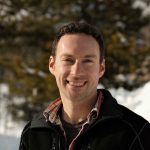
Nick Grant is originally from Illinois and has a background in Mechanical Design and Industrial Engineering. Nick came to CSU in 2012 to pursue a undergraduate degree in Electrical Engineering. He focused on VLSI and digital system design during his undergraduate work with an interest in integrated analog / mixed signal design. As a senior project he designed a four layer mixed signal circuit board to interface the third generation CMOS Biosensor to other devices where shielding, noise, and signal integrity were key. Nick has completed several computer science classes to understand systems from the user interface down to the physics of the transistor.
During his MS program in Electrical Engineering, Nick researched ways to apply his integrated systems knowledge to the biomedical field to help improve research and medical care. Working with an interdisciplinary group of chemists and biologists, Nick’s focus was on helping to develop a complete Lab on Chip system.
When not working, Nick can most likely be found in the mountains and enjoying the outdoors. Nick loves to go mountain biking, camping, hiking, snowboarding… Anything to be outside.
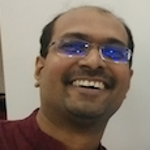
Gitesh Kulkarni is an embedded systems designer by profession and a Maker at heart. He joined the Bliss Lab after a long stint in the industry to pursue a Master’s degree in Electrical and Computer Engineering. His research interest lies at the interface of human body and analog electronics. Prior to joining the Bliss Lab Gitesh created embedded systems products for leading technology companies. Gitesh received Bachelor of Engineering in Electronics and Telecommunications from Pune University, India.
When not playing with Linux and soldering gun in his dungeon, he is busy reading novels, comics, and musing about philosophy. He is a licensed Ham radio operator as well.
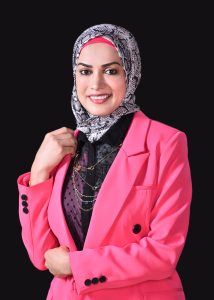
Yusra Obeidat
Yusra received her Bachelor of Science degree from electrical and electronics engineering department at Hijjawi faculty of engineering in Yarmouk University in Jordan in 2010. She worked as electronics labs instructor at Hijjawi faculty of engineering for two years after graduation. Yusra joined CSU in 2012 in a scholarship from Yarmouk university and got her MS in electrical engineering in fall 2014, her thesis was in modeling of optical waveguides with porous silica claddings and their use in LEAC sensors. Yusra joined BLISS lab in spring 2015 and received her Ph.D. degree. Her PhD project dissertation is on designing integrated sensors including oxygen, glucose, lactate and pH for measuring cell metabolism using electrochemistry methods. The classes that she has taken at CSU were mainly in analog and digital circuits design, RF integrated circuits design, and VLSI design. Beside engineering, Yusra likes reading and writing novels and poems, and she also likes music and basketball.

William Tedjo received his Ph.D. from the Electrical and Computer Engineering Department, Colorado State University. He joined the group in 2012 as a senior-year undergraduate student. He is passionate in mixed-signal CMOS Integrated Circuit design and layout, and system level electronic device development for biomedical application.
In the High Density Chemical Imaging project, he oversaw all aspect of hardware/software design and interface, such as: design of custom CMOS microchip (gate level analog and digital circuit design and custom layout), components selection and layout at the PCB level, develop hardware/software interaction, conduct chemical and biological ex vivo experiments, and perform statistical analysis and data visualization.
Academically, he has been actively involved as a teaching assistant for a wide range of electrical engineering circuit courses, from freshman to graduate level. He was appointed by the CSU College of Engineering as one of the Graduate Teaching Fellow in 2016-2017; responsible to study and enhance freshman engineering students experience during their early college education.
Besides his interest in technology, during free time, William enjoys culinary activities, photography, driving, and PC gaming.
Devashish R. Vedre was involved in research to provide a low power and cost-effective platform which can carry out droplet movement at will and can be used for building a portable biochemical detection and analysis device. Davashish’s work included droplet actuation using Electrowetting on Dielectric (EWOD) technique and testing movement of different kinds of liquids on chip in different environments. He studied the effects of different kinds of material used to fabricate DM chips and the related specifications and conditions required to perform Splitting, Moving, Mixing and Merging of droplets. Davashish’s previous degree is a B.E from Mumbai University, India.

Lang Yang
Lang Yang finished his B.S. in Polymer Material Science and Engineering in China and started his graduate study in Electrical and Computer Engineering at CSU in Fall 2013. He joined BLISS in June 2014 and switched the M.S. program to the PHD. Program in Fall 2014. His research area lies in system level design for pathogen detection platform which includes designs of sensing electrode, microfluidic device, 3D-printing prototyping, PCB/transistor level mixed signal electronics and phone/tablet app UI ,etc. He loves playing tennis, reading and watching animation for his spare time
Walter Scott, Jr. College of Engineering
www.engr.colostate.edu
700 Meridian Ave
1301 Campus Delivery
Fort Collins, CO 80523-1301
(970) 491-3366
School of Biomedical Engineering
www.engr.colostate.edu/sbme
700 Meridian Ave
1376 Campus Delivery
Fort Collins, CO 80523-1376
(970) 491-7157
Walter Scott, Jr. College of Engineering
www.engr.colostate.edu
700 Meridian Ave
1301 Campus Delivery
Fort Collins, CO 80523-1301
(970) 491-3366
School of Biomedical Engineering
www.engr.colostate.edu/sbme
700 Meridian Ave
1376 Campus Delivery
Fort Collins, CO 80523-1376
(970) 491-7157




